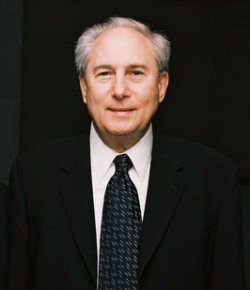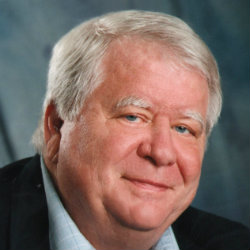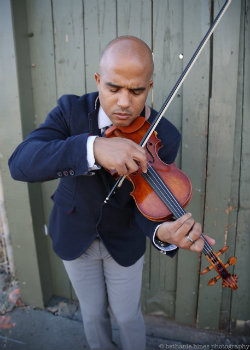An acclaimed musical composer and violinist, an editorial writer for The New York Times, two veteran journalists awarded Grantland Rice Scholarships, and a federal securities attorney who played a significant role at the U.S. Securities and Exchange Commission are the five newest members of the Vanderbilt Student Media Hall of Fame.
Selected for the 2019 class are Daniel Bernard Roumain, BMus’93; Michelle Cottle, BA’92; David Rapp, BA’73; William Livingston, BA’70; and Gary Cohen, BA’59. All five of the honorees worked for the Vanderbilt Hustler.
Gary Cohen, BA’59

Cohen, who grew up in Nashville and graduated from Hillsboro High School, wrote for the Hustler all four of his undergraduate years. He served as editor-in-chief his senior year, writing what he describes as “crusading editorials” that criticized the university administration for actions taken without student input, such as development of undisclosed plans for restructuring the Greek system, dismissal of a majorette for not being consistent with Vanderbilt social norms and requiring women students to wear raincoats over their shorts. The Tennessean and Associated Press were among the media reporting on Cohen’s editorials.
Cohen remembers former Tennessee governor and current U.S. Sen. Lamar Alexander as his best reporter at the Hustler. “Lamar would always volunteer for the biggest, most difficult story, often interviewing university administrators on issues that the students were challenging,” he said.
Cohen’s campus activities included serving on the Honor Council and as president of Zeta Beta Tau fraternity. He majored in economics and business administration, graduating magna cum laude in 1959. He then served in the Air Force and earned his law degree from Harvard Law School.
Cohen went on to work at the U.S. Securities and Exchange Commission, where he became assistant chief counsel of the Division of Investment Management. During his five years on staff at the SEC, the U.S. Supreme Court held that variable annuities were subject to SEC regulation, and he participated in the development of the SEC’s regulatory regime.
Cohen continues to practice in the area of federal securities law and write and lecture widely. The National Association for Variable Annuities has praised Cohen as one of the “recognized experts who helped to build this industry.”
William Livingston, BA’70

Livingston, who grew up in Dallas, was a Grantland Rice Scholar when he enrolled at Vanderbilt in 1966. “I didn’t sign up for the Hustler my first year as I was too worried about my grades,” he said. He was recruited his sophomore year by the incoming editor, Chuck Offenburger, BA’69. Livingston began as sports editor but he especially enjoyed writing columns, including some political-themed ones, his junior and senior years.
“Doug Bates and I were very proud of our columns and would read them out loud to each other, laughing about how witty they were,” he said of his friend and fellow Hustler columnist, Douglas Bates III, BA’69. “Years later, when I became a sports columnist for a living, my wife remarked that she had never known a columnist without an ego.”
Livingston, who was a member of Alpha Tau Omega fraternity, majored in English. He graduated cum laude in 1970 and began his career at the Dallas Morning News, where he had interned a year after what he calls “a half-baked pursuit of a master’s at the University of Texas.” Livingston worked for the Philadelphia Inquirer before becoming senior sports columnist for the Cleveland Plain Dealer in 1984. Livingston, who retired from the Plain Dealer in 2018, will be inducted into the Cleveland Press Club Hall of Fame in November. The Pulitzer Prize-nominated writer is also the author of George Steinbrenner’s Pipe Dream: The ABL Champion Cleveland Pipers.
David Rapp, BA’73

Rapp grew up in Evansville, Indiana, and worked as a freelance writer for the Evansville Press in high school, “covering basketball games in the boonies with 5,000 people in the stands.” Rapp came to Vanderbilt in 1969 as a Grantland Rice Scholar.
“The ’60s turmoil across colleges campuses had finally come to Vanderbilt, and the Hustler was on top of it,” Rapp said. “My freshman year I wrote both news and sports stories. The next year I was the arts and entertainment editor, which provided some extraordinary writing assignments given our location in Music City.”
He attended a Music Row recording session with country singer Tex Ritter and prominent producer and songwriter Bobby Sherrill. He also remembers legendary country singer-songwriter Johnny Cash coming to campus to serenade the students on a rainy Saturday afternoon.
Rapp, a member of Alpha Epsilon Pi fraternity, devised his own major—Theory of Communications. “Basically, I completed the course hours for minors in English, philosophy and music,” he said. After graduation in 1973, Rapp was briefly a poet and bartender before working for the Memphis Press-Scimitar, Cincinnati Post and Pittsburgh Post-Gazette.
He moved to Washington, D.C., in 1985, starting a nearly quarter-century career at Congressional Quarterly, which produces a number of high-profile publications about Congress. Rapp was a new media pioneer in the ’90s, presiding over the transformation of CQ’s traditional newsroom to a 24/7 electronic model.
Since 2014, he has worked independently as a journalist and publishing consultant. His book Tinker to Evers to Chance: The Chicago Cubs and the Dawn of Modern America—about the great double play combo of Joe Tinker, Johnny Evers and Frank Chance—was published by the University of Chicago Press in 2018.
Michelle Cottle, BA’92

Cottle grew up in Alabama and Tennessee while her father worked in the nuclear power industry. She enrolled at Vanderbilt in 1988 but didn’t start writing for the Hustler until her sophomore year. “I saw an ad looking for a humor columnist, and it turned out to be the perfect fit for me,” Cottle said. “I absolutely loved writing the column for three years, and I think the experience helps me keep my perspective on the divisiveness and polarization inside the Beltway these days.”
Cottle majored in English—with a concentration in writing—and minored in European studies. After graduation, she moved to San Francisco for an internship, which led to a fellowship with Mother Jones magazine. In 1996, she moved to D.C., becoming editor of the Washington Monthly, a magazine focused on U.S. politics and government. “My time there was like a journalism boot camp, a training ground for rising political writers that included Michael Kinsley and Jon Meacham,” she said.
Cottle also worked at the New Republic as a senior editor and Newsweek and The Daily Beast as a Washington correspondent. More recently, she was a senior writer at the National Journal and a contributing editor at The Atlantic, before being named lead editorial writer for national politics at The New York Times in 2018.
Cottle’s experience and relationships developed over the years in D.C. have been beneficial to her editorial pieces. “For example, it’s very helpful to know congressional staffers who can explain the complicated legislative process,” she said. Cottle has written editorials about everything from immigration policy and the Trump administration to the confirmation hearings for U.S. Supreme Court Justice Brett Kavanaugh.
Daniel Bernard Roumain, BMus’93

Roumain, who is widely known by the moniker DBR, grew up in southeast Florida and graduated from Dillard High School for the Performing Arts. A generous financial aid package and the encouragement of his parents and several Blair School of Music professors led Roumain to Vanderbilt in 1989.
“It was a difficult time to be a black Haitian-American student on campus, which lacked diversity and a culture of inclusiveness, to say the least,” Roumain said. “However, several professors—including Michael Kurek, Michael Alec Rose and Christopher Teal—and Chancellor Joe B. Wyatt and Dean K.C. Potter were very supportive of my interests.”
Roumain covered arts and entertainment stories for the Hustler and an arts magazine within the paper called Ripple. “Interviews with musical heavyweights like violinist Mark O’Connor, banjoist Bela Fleck and then-Nashville Symphony conductor Kenneth Schermerhorn were wonderful,” Roumain said. “I also met Bill Conti, who wrote the Rocky movie theme.”
A special memory for Roumain was writing the musical piece Haitian Essay, which was performed by the Vanderbilt Symphony Orchestra when then-Haitian President Jean Bertrand-Aristide was visiting Nashville and in attendance. Roumain performed the Haitian national anthem at a reception for Bertrand-Aristide.
After receiving his bachelor of music from Vanderbilt in 1993, Roumain earned his doctorate at the University of Michigan.
Roumain has won an Emmy for outstanding musical composition for his collaborations with ESPN; created works for Carnegie Hall, Boston Pops and the Library of Congress; and led the creation of the chamber opera We Shall Not Be Moved, which was cited by The New York Times as one of the best classical musical performances of 2017. He has collaborated with singer Lady Gaga, multimedia artist DJ Spooky and composer Philip Glass, among others.
Roumain, who has been a visiting composition professor at the Blair School, is currently teaching at Arizona State University.
The names of the five new inductees will be added to a permanent Hall of Fame display in Sarratt Student Center. An open house with tours of the renovated Student Media facilities and an “unveiling” of the Hall of Fame display will be held Friday, Oct. 18, at 2 p.m.